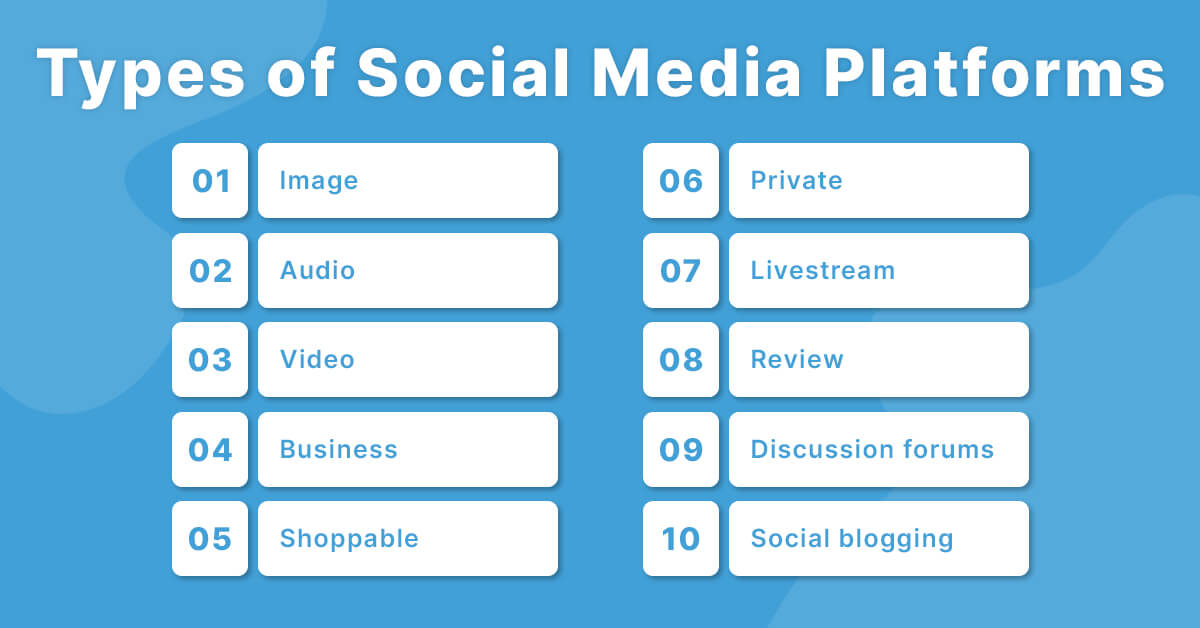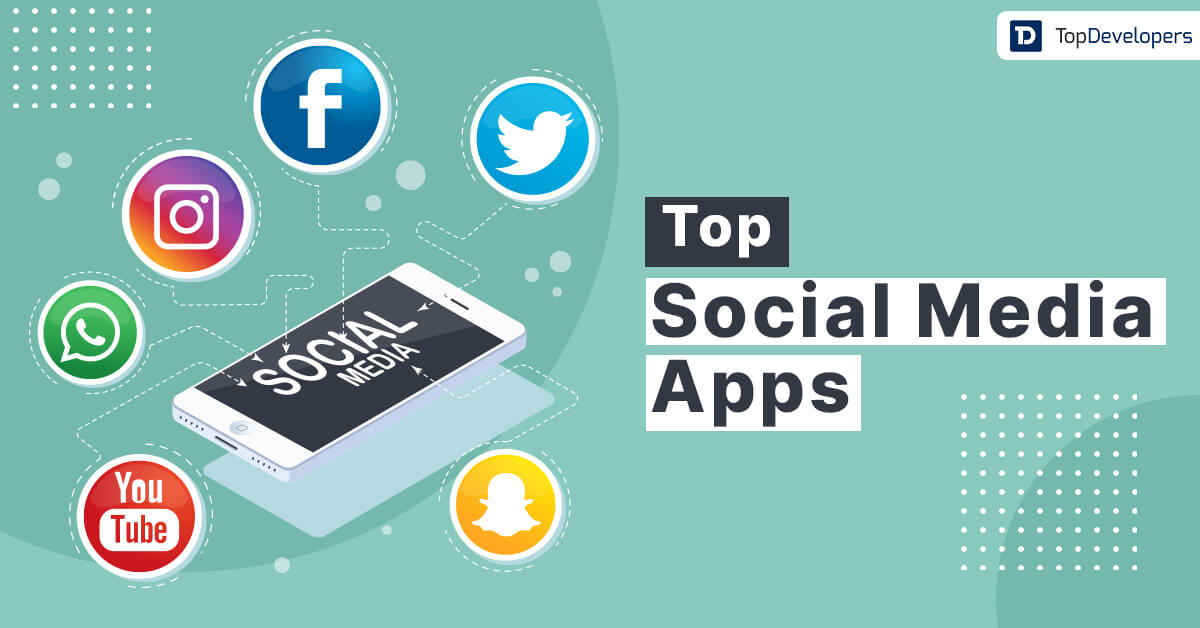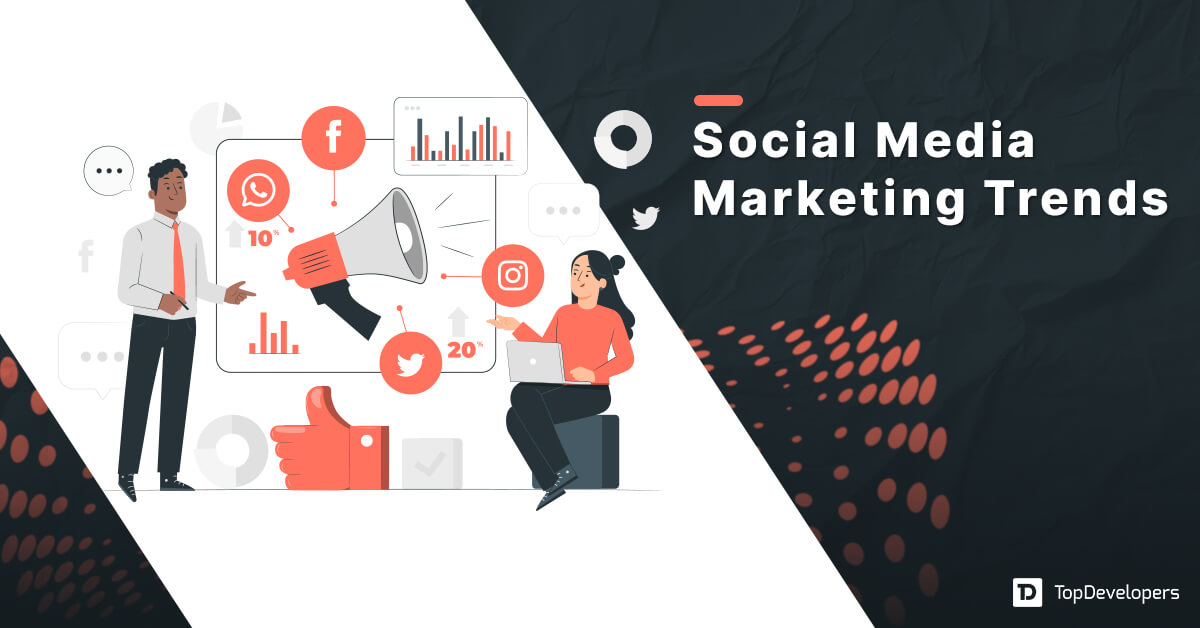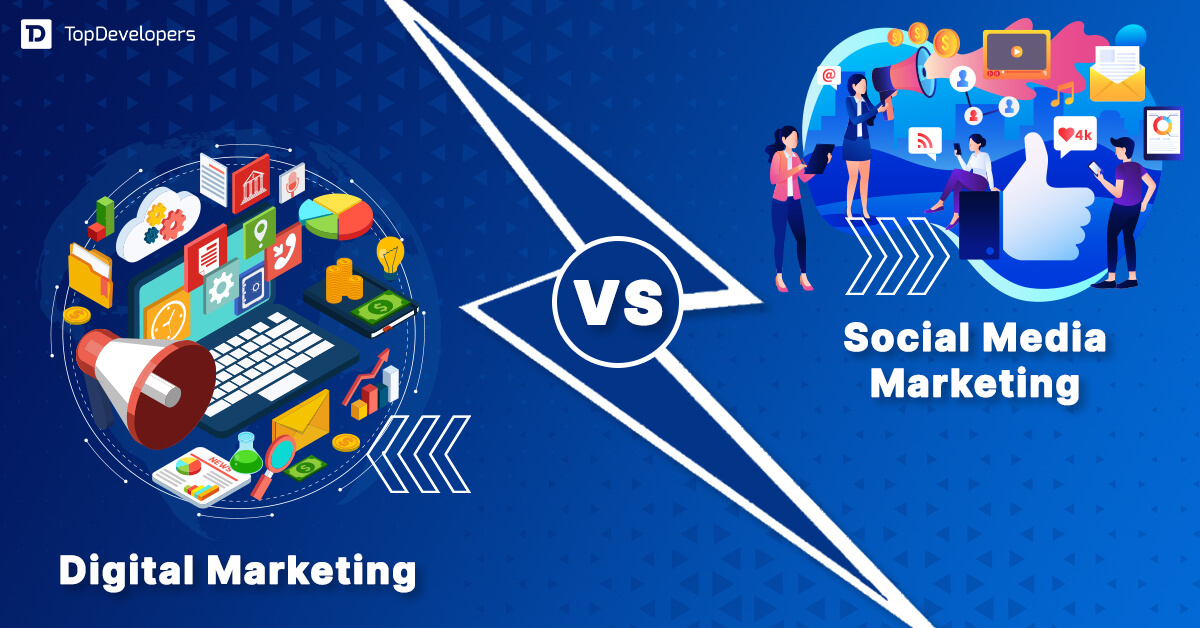
“You don’t need a corporation or a marketing company to brand you now: you can do it yourself. You can establish who you are with a social media following.” — RAY ALLEN.
It goes well with every business looking to market the products/services with rich insights and increasing customer reach to grow boundlessly. Social media apps provide an excellent opportunity to share unique ideas behind the offerings and inform the users about them innovatively (Using text, visuals, videos, and others).
Big brands such as International HSBC, Tiffany and Co., and others are using social platforms, which tempts startups to SMBs harness social power. However, joining all platforms doesn’t make sense, as every platform helps businesses succeed distinctively. Prioritizing investment of effort and time in social media marketing enables gaining expected outcomes.
In this blog, you will understand how social media platform helps you create a lot of bang for your money using different types of social media platforms while considering market statistics as well. Let’s dive deeper into the details of each.
Table of Contents
Market Overview of Social Media Platforms Usage
Businesses always talk or make decisions based on figures and facts. Here are a couple of statistics that help businesses sweep assumptions as they don’t like to run businesses on guts.
The number of social media users worldwide has increased to 4.9 billion people and it’s expected to jump to 5.85 billion users by 2027. The social media users are not tied to a single platform; instead, they are using 6 to 7 platforms, indicating that a multi-platform approach for social media marketing is required.
As average time spent on social channels is 2 hours 25 minutes, which is a significant portion of a day that businesses can use effectively for social media marketing. Analyzing the engagement level of demographics will help in planning social media campaigns accordingly.
76% of social media users stated that they purchase something they saw on social channels and 90% of users follow at least one brand, which is an indication of how social power helps businesses establish their identity and build loyalty. We will dig deeper to know the influence of different types of social media platforms.
Different Types of Social Media Platforms
With different types of social media apps out there, it isn’t easy to find the best fit for the business’s social marketing purpose. Understanding various types of social media platforms, along with their examples and advantages, helps businesses steer the marketing boat in the right direction.
Image-based social media platform
Traditional social media apps such as Instagram, Snapchat, TikTok, and Facebook allow businesses to raise their voice and connect with users by sharing text and images. Regular posting allows businesses to collect information about users and even targeted multimedia ads that enable sharing content with the right users.
Businesses also leverage image-based platforms for visual storytelling, brand building, and selling products/services. For example, TikTok photo mode allows users to add music to their images, and other users can view the photos as they scroll automatically with background sound playing. Businesses highly leverage this format for telling longer stories or making announcements for upcoming sales.
Audio-based social media platform
Nowadays, people are interested in listening to songs, music, or podcasts for any topic of their choice. Spotify, Gaana, Twitter Spaces, and Amazon Music are popular social audio platforms allowing users to listen during exercise or work. Businesses can also leverage the audio content on social platforms for their business advantages in different ways.
Businesses can launch social audio ads that play in between podcasts, informing a wide range of people about their offerings. Also, a podcast is created related to trending topics that interested users will listen to and know about business. Any update or announcement related to business offerings is made available in the audio format.
Video social media platform
Videos emerged as an engaging format of content that’s popular on social media platforms as well. On social platforms such as YouTube, TikTok, Facebook Watch, and Instagram Reels, both short-form and long-form video content are available that users love to watch for information consumption or entertainment purposes.
Short-form video content is popular to add life to the product and improve brand awareness socially. Such short video content is easy to capture, edit, and publish on social platforms that engage, entertain, and educate users. Long-form videos are popular for discussing the latest trend or new topic that helps increase social media app users’ outreach.
Business social media platform
Twitter and LinkedIn are two popular social networking platforms known worldwide to connect with professionals of different industries globally. Individuals to businesses use business social platforms to connect with prospects and clients and strengthen B2B relationships.
In fact, social media applications emerged as great platforms to recruit the best talent with job ad postings and easily connect with interested candidates. Businesses can keep an eye on their staff with premium version access that helps get rich insights to reduce employee turnover.
Shoppable social media platform
Shopify, Facebook, TikTok, and Instagram have helped businesses turn social media pages into shopping platforms by allowing users to shop right on the social page without any back-and-forth. The platforms allow businesses to upload the product catalog with checkout directly from social media pages.
For example, Instagram shopping facilitates businesses creating a storefront where they can tag products in images or videos shared and buy from the same page without much ado. Snapchat store allows businesses to connect to store catalogs and add a shop tab on their profile for an effortless shopping experience. Also, the details of products and links to websites are added for easy research and even direct users to the business shopping website.
Private social media platform
A like-minded group of people looks for an online community where they can share their thoughts and discuss their common problems. Slack, Facebook groups, and discord-like social platforms are created with such ideas in mind, bringing communities together.
Businesses can create private communities engaging users with contests, promotions, or user-generated content. Businesses get to know more about their customers by asking questions and analyzing their answers.
For example, the instant pot Facebook group is a community of more than 3 million users who share recipes and tips for food cooked using instant pot. The group asks a few questions to every user and urges them to join the community to know users and their pain points, which helps improve the product and community group.
Social media livestream
The growing need for instant gratification is perfectly served by emerging live social media apps such as YouTube, Instagram Live, Facebook Live, and TikTok Live. The livestream platforms facilitate broadcasting live video to thousands of users simultaneously. The recent pandemic gave a boost to this social media trend in all age groups.
Businesses vitally use Livestream social media platforms for hosting AMA sessions, interviewing well-known figures, or launching new products that help create a long list of fan following and make it easy to connect with the audience directly. Live chat and polls features are helping vitally in engaging audiences in social livestreams.
Review sites and platforms
Leaving reviews and ratings for every brand product or service that users like or dislike is commonly viewed. It works magically for businesses when they leverage it intelligently. Yelp, Glassdoor, and Trust Pilot are popular social review sites and platforms that allow users to provide reviews and ratings for the product enlisted.
The positive reviews become social proof for your brand products/services, and other reviews help understand where the brand needs to improve. Understanding users’ perceptions provides real information about the product that businesses can use to enhance user experience for the next time they use the product.
Discussion forums
Quora and Reddit have been here with us for years, which are largely used for getting answers to questions within the community and helping with networking as well. These are discussion forums where interest-based topics are discussed in detail. Businesses avail of these discussion forums through their subject matter experts, who will listen to challenges that users are facing and help them resolve them with appropriate answers.
When the healthy discussion is shared in the form of questions and answers below brand products/services, users’ trust gets intensified, but it must be used intelligently. For example, Redditors dislike self-promotion and even downvote such posts. So, consider adding only relevant product links that help.
Social blogging sites and networks
Writing blogs for business offerings is also getting popular to make the brand easily discoverable, get the audience familiar with products/services, and build engagement. Medium and Tumblr are social blogging sites that allow businesses to publish content regarding specific offerings regularly.
Continuously publishing the blog content keeps the users updated with relevant content and builds a network of users interested in reading the content with the right mix of photos, videos, and important information. In addition to brand awareness, social blogging sites help with quality lead generation.
Grow Your Business With Social Platforms!
Social media platforms have the potential to help businesses cut through the noise. But the excellent opportunity translates into high traffic, more sales, and uplifted ROI only when you perform necessary homework.
Different types of social media platforms allow businesses to serve different purposes, which makes it essential to choose the social platform that aligns with business goals. Also, catching maximum eyeballs and ears is possible when customized content is created for social platforms that engage target users.
For example, LinkedIn best fits corporate businesses where they post content and find top talent easily. On the contrary, Instagram fits well for SMBs looking to promote and sell their products right on the social page. Select and embrace social platforms to harness the maximum potential of the platforms.
 Gillian Harper
| Mar 26, 2024
Gillian Harper
| Mar 26, 2024
A professionally engaged blogger, an entertainer, dancer, tech critic, movie buff and a quick learner with an impressive personality! I work as a Senior Process Specialist at Topdevelopers.co as I can readily solve business problems by analyzing the overall process. I’m also good at building a better rapport with people!



